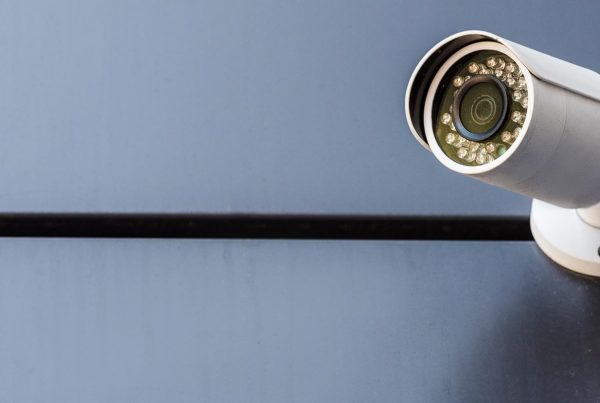Human rights and privacy groups seek firmer ruling on bulk surveillance, appealing landmark judgment Following last year’s victory in which the European Court of Human Rights (ECtHR) found the UK’s historic surveillance regime was illegal, a coalition of human rights groups, including CCLA, will today ask the Strasbourg Court’s Grand Chamber to go further in its judgment. This is a case that has global implications for surveillance on the world’s communication networks. CCLA is participating because messages from people in Canada are regularly caught up in this bulk collection, violating the privacy of our personal communications without suspicion, and largely without meaningful recourse. Last September, after a five year legal battle, the ECtHR found the UK’s historical bulk interception regime (under the Regulation of Investigatory Powers Act 2000) violated the right to privacy protected by Article 8 of the European Convention on Human Rights and the right to free expression protected by Article 10. Today, CCLA and six of our partner groups from the International Network of Civil Liberties Organisations (INCLO) led by Liberty, join Amnesty International and Privacy International in seeking to build on that victory. We are arguing at the Court’s highest chamber that bulk interception of communications inherently violates our privacy and freedom of expression. We are also arguing that the regime for intelligence sharing between the UK and foreign states is illegal, as the UK Government can, in sharing intercepted material, bypass the safeguards in place for when it itself intercepts communications. Only a small number of the most significant cases get heard at the Grand Chamber. In the light of rapid technological change and the intrusiveness of bulk surveillance, the coalition is urging the Court to reassess the lawfulness of carrying out mass surveillance on ordinary people not considered a threat.
Brenda McPhail, Privacy, Technology & Surveillance Director, CCLA said: “Mass surveillance simply is not justifiable in any rights-respecting democracy. CCLA stands with our international partners in this case, fighting for residents in Canada and around the world against the ravages to privacy and free expression rights created by bulk capture of our personal, private communications.”
Megan Goulding, lawyer at Liberty, said: “Bulk surveillance powers mean that UK government agencies are spying on ordinary people on an enormous scale, sweeping up and storing their private communications and data. “These powers have already been found to be illegal by the Court, and today’s hearing is another important step towards ensuring our surveillance regime respects our fundamental rights to privacy and free expression. “Our surveillance regime must be led by suspicion rather than subjecting us all to intrusive state monitoring which undermines our freedom.”
The Case
On 13 September 2018, the ECtHR ruled that UK laws enabling mass surveillance violate our rights to privacy and freedom of expression. However, the judgment did not go far enough with regard to the unlawfulness of bulk interception powers and the fundamental shortcomings in the regime for intelligence sharing between the UK and foreign states. The coalition of rights groups therefore requested the European Court to have the case referred to its highest judicial bench, the Grand Chamber. In this appeal, we are seeking a final ruling that such bulk interception powers inherently violate our rights to privacy and freedom of expression. We are also arguing that the regime for inter-state intelligence sharing based on such intercepts is illegal, because it allows the UK to circumvent the safeguards in place for when it carries out interception, despite the fact that the intrusion into an individual’s privacy is identical in each case.
Elizabeth Farries, Surveillance and Human Rights Program Manager, INCLO said: “Why should we have to hide from spying governments? Recognised under numerous instruments, treaties and international norms, privacy is our foundational right upon which many of our associated freedoms operate. Led by Liberty, seven INCLO members from across the globe join this challenge to protect the private communications rights of hundreds of millions of people.”
Background
This case began in 2013, following Edward Snowden’s revelations that the UK Government was secretly intercepting, processing and storing data concerning millions of people’s private communications, even when those people were of clearly of no intelligence interest. Snowden also revealed that the Government was accessing communications and data collected by the USA’s National Security Agency and other countries’ intelligence agencies. All of this was taking place without public consent or awareness and with no proper safeguards. The information collected and stored by the Government can reveal the most intimate aspects of a person’s private life – including who they are, where they go, who they contact, which internet sites they visit, what their opinion is, etc.
Caroline Wilson Palow, General Counsel, Privacy International said: “Should the government be allowed to snoop on your digital communications even if you’re not suspected of any crime? Just because the technology enables them to, should they be allowed to do this at an unprecedented scale, snooping on potentially millions of people? We have been arguing for several years that the answer to both these questions is a resounding no. ” Last year the European Court of Human Rights ruled that parts of the UK’s historic mass surveillance regime were unlawful. Today we are asking the Grand Chamber to build on last year’s judgment and say once and for all that the UK government’s bulk interception of our digital communications is a violation of privacy and freedom of expression, as protected by Articles 8 and 10 of the European Convention on Human Rights”
Counsel for the case are Ben Jaffey QC and Gayatri Sarathy of Blackstone Chambers, and David Heaton of Brick Court Chambers.
About the Canadian Civil Liberties Association
The CCLA is an independent, non-profit organization with supporters from across the country. Founded in 1964, the CCLA is a national human rights organization committed to defending the rights, dignity, safety, and freedoms of all people in Canada.
For the Media
For further comments, please contact us at media@ccla.org.





